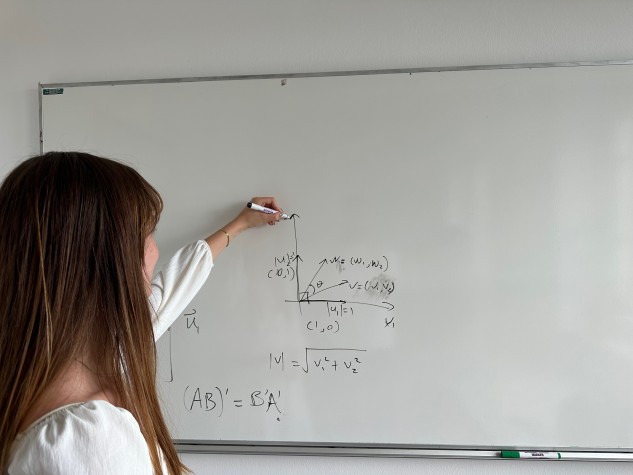Computational Modelling of Intelligent Systems
Using mathematically rigorous and algorithmically diverse tools we seek to understand the nature of representation and computations that give rise to intelligent behaviour, with particular regard to the challenges posed by inferential uncertainty and the opportunities afforded by volitional movement.

Prof. Yu has been granted a Humboldt professorship. The Alexander von Humboldt Professorship is the most prestigious German science award and is granted exclusively to top researchers who are world leaders in their field. It is designed to reinforce theoretical and methodological core expertise at TU Darmstadt and to promote the integration of AI and cognitive science.
Prof. Yu is also a member of the the Department of Computer Science where she holds a professorship by courtesy.
Prof. Yu’s group uses diverse machine learning and statistical tools, e.g. Bayesian statistical modeling, control theory, reinforcement learning, and information theory, theoretical frameworks and mathematical models are developed to explain various aspects of cognition important for intelligence: perception, attention, decision-making, learning, cognitive control, active sensing, economic behavior, and social interactions. Candidates who have experience with two or more of these technical areas, and/or one or more of the application areas, are highly encouraged to apply.
Find out more about the disparate research questions within Prof. Yu's research group
Some example research questions new members of the group may pursue include the following (the funding is flexible, the only requirement being that the topic excites both Prof. Yu and the candidate):
- How does the ability to move and interact with the world facilitate perception, decision making, and representation learning?
- Are human attention and working memory capacity limitation bugs or features?
- How do humans represent and process complex visual entities, e.g. faces?
- How does the brain learn a general-purpose representation with so little labeled data and in the absence of concrete tasks?
- How are humans so good at problem solving and logical reasoning, and yet also prone to certain fallacies and illusions in cognition & perception?
- What do IQ tests actually measure and what does it imply about the difference between human and artificial intelligence?
- What roles do intrinsic motivations such as curiosity and emotions play in intelligence?
- How can insights about human intelligence improve the understanding, utilization, augmentation, and regulation of artificial intelligence?
Prof. Yu’s group strengthens and complements research at the Centre for Cognitive Science at TU Darmstadt (link below) and at hessian.AI, the Centre for Artificial Intelligence of Hesse based in Darmstadt. Her group members are encouraged and expected to collaborate extensively with preeminent researchers in cognitive science, AI, neuroscience, and related fields in Germany and internationally.
Follow this link for the Centre for Cognitive Science at TU Darmstadt








